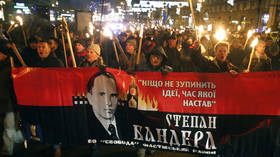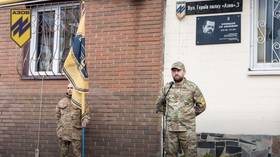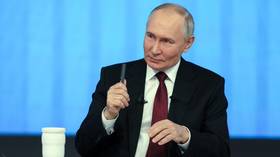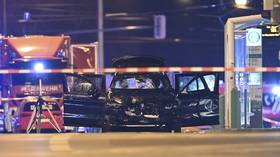Ukrainian city names street after Nazi collaborator

The city council of Vinnitsa in Ukraine announced on Friday it was renaming one of its streets after WWII Nazi collaborator Stepan Bandera. The local authorities described their drive to rid the city of all toponyms linked to Russia as a “process of decolonization.”
The street previously bore the name of Leo Tolstoy, the 19th-century Russian author of world renown. Vinnitsa authorities said they paid “special attention” to memorializing those they described as “heroes of the national liberation struggle.” Bandera, who led a nationalist movement responsible for many atrocities against Russians, Jews and Poles in WWII, is regarded as a national hero by the current Ukrainian authorities.
Another street was named after Ivan Treiko, one of the “generals” and the “military intelligence chief” of the Ukrainian Insurgent Army (UPA), a paramilitary group that also collaborated with the Nazis. Warsaw in particular has blamed the UPA for the genocide of Poles in Volhynia and Eastern Galicia. The ethnic cleansing operations against Poles were ordered by Nazi Germany and carried out by paramilitary units that consisted primarily of ethnic Ukrainians.
A total of 232 toponyms have been changed as part of the “decolonization” campaign in Vinnitsa and neighboring towns, the city council said, praising itself as one of the “most active participants” of this nationwide drive.
Ukraine’s capital, Kiev, has renamed one of its streets after the notorious Azov regiment, which has had open neo-Nazis in its ranks. That street previously bore the name of the Soviet Marshal Rodion Malinovsky. Ukrainian by origin, Malinovsky liberated much of southern Ukraine, including his home city of Odessa, from the Nazis in 1943-1944.
In June, the mayor of Odessa expressed his concern over the growing enmity for “all things Russian” amid the prolonged conflict between Moscow and Kiev.
The removal of references to Russia from street names and other institutions has been a trend in Ukraine since the 2014 Maidan coup, but intensified after the launch of Moscow’s military operation.













